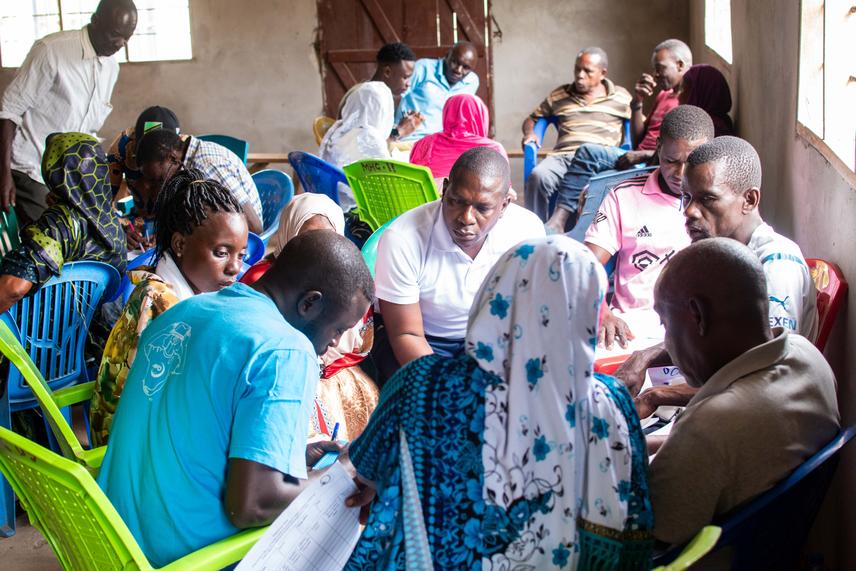Nancy Iraba
Other projects
2 Mar 2023
Community Based Long-Term Monitoring of Buyuni Coral Reef to Enhance its Conservation
PEPOKIBUKWA Collaborative Fisheries Management Area (CFMA) located along Tanzania’s southern coastline is a vital marine ecosystem supporting biodiversity and the livelihoods of over 5,000 coastal residents across five villages: Buyuni, KwaMoris, Puna, Kibungu, and PembaMnazi. Despite its ecological and socioeconomic importance, the area is under increasing threat from illegal fishing, overfishing, weak governance, and unsustainable practices, resulting in severe coral reef degradation and declining fish stocks.

Community group discussion on how to conserve coral reefs within their CFMA. © AFO.
In 2022, Aqua-Farms Organization (AFO) initiated a pilot coral restoration programme in Buyuni Village with initial support from the Rufford Small Grant. The project successfully restored 1,073 coral fragments within a 400-metre reef area, achieving a 90% survival rate and increasing fish abundance by 30%. While the initiative demonstrated the power of community-led conservation, it also revealed gaps in governance, enforcement, and broader community engagement across the CFMA.
Building on this success, the proposed project aims to scale up conservation efforts across all five villages. The core objectives are to:
1. Strengthen governance structures and compliance by assessing BMU performance and training 50 stakeholders, including fisheries officers, BMU members, and local leaders.
2. Develop a participatory Five-Year Coral Reef Management Plan through inclusive consultative workshops and validation processes.
3. Promote community awareness and engagement through six targeted awareness campaigns, the Matumbawe Hai Festival, and the distribution of educational materials to schools and fishers.
The project adopts an inclusive, science-based, and culturally relevant approach that integrates local knowledge with ecological data to improve reef health, restore fisheries, and build long-term community stewardship. Involving fishers, women, youth, and local governance bodies, this initiative will promote sustainable marine resource management, enhance economic resilience, and support biodiversity recovery.
Ultimately, the project will create a replicable model of community-led reef restoration and governance that contributes to national and regional conservation goals while empowering coastal communities to protect their natural heritage.